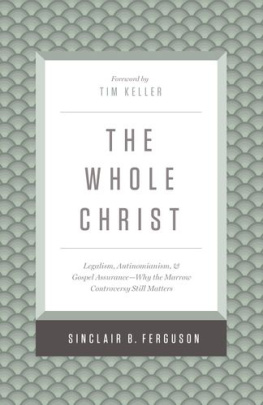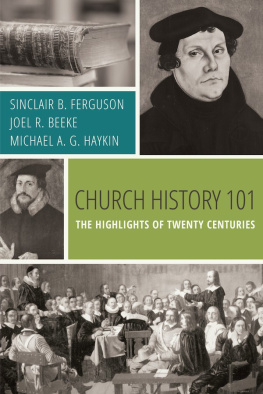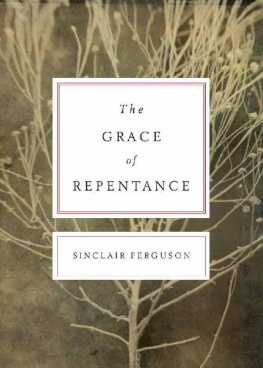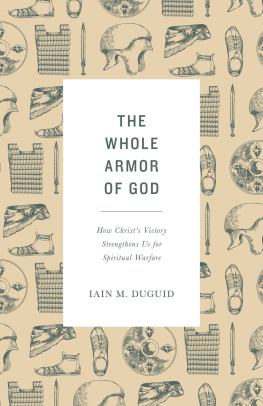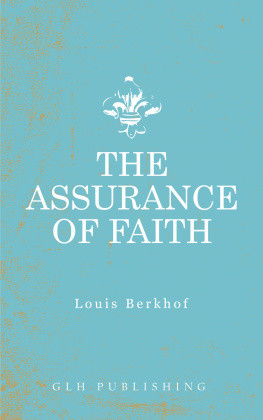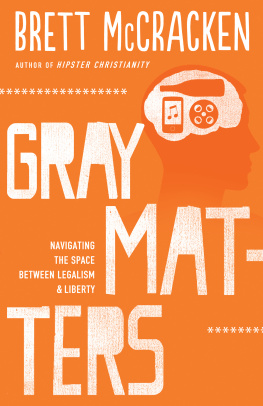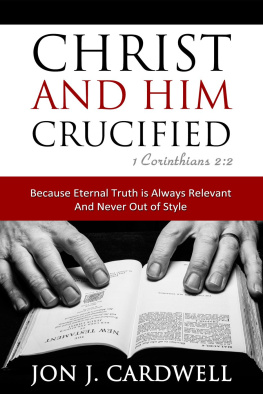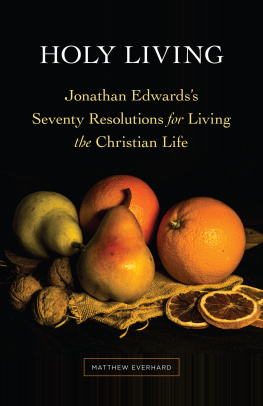Sinclair B. Ferguson - The Whole Christ: Legalism, Antinomianism, and Gospel Assurance—Why the Marrow Controversy Still Matters
Here you can read online Sinclair B. Ferguson - The Whole Christ: Legalism, Antinomianism, and Gospel Assurance—Why the Marrow Controversy Still Matters full text of the book (entire story) in english for free. Download pdf and epub, get meaning, cover and reviews about this ebook. year: 2016, publisher: Crossway, genre: Religion. Description of the work, (preface) as well as reviews are available. Best literature library LitArk.com created for fans of good reading and offers a wide selection of genres:
Romance novel
Science fiction
Adventure
Detective
Science
History
Home and family
Prose
Art
Politics
Computer
Non-fiction
Religion
Business
Children
Humor
Choose a favorite category and find really read worthwhile books. Enjoy immersion in the world of imagination, feel the emotions of the characters or learn something new for yourself, make an fascinating discovery.
- Book:The Whole Christ: Legalism, Antinomianism, and Gospel Assurance—Why the Marrow Controversy Still Matters
- Author:
- Publisher:Crossway
- Genre:
- Year:2016
- Rating:5 / 5
- Favourites:Add to favourites
- Your mark:
- 100
- 1
- 2
- 3
- 4
- 5
The Whole Christ: Legalism, Antinomianism, and Gospel Assurance—Why the Marrow Controversy Still Matters: summary, description and annotation
We offer to read an annotation, description, summary or preface (depends on what the author of the book "The Whole Christ: Legalism, Antinomianism, and Gospel Assurance—Why the Marrow Controversy Still Matters" wrote himself). If you haven't found the necessary information about the book — write in the comments, we will try to find it.
Sinclair B. Ferguson: author's other books
Who wrote The Whole Christ: Legalism, Antinomianism, and Gospel Assurance—Why the Marrow Controversy Still Matters? Find out the surname, the name of the author of the book and a list of all author's works by series.
The Whole Christ: Legalism, Antinomianism, and Gospel Assurance—Why the Marrow Controversy Still Matters — read online for free the complete book (whole text) full work
Below is the text of the book, divided by pages. System saving the place of the last page read, allows you to conveniently read the book "The Whole Christ: Legalism, Antinomianism, and Gospel Assurance—Why the Marrow Controversy Still Matters" online for free, without having to search again every time where you left off. Put a bookmark, and you can go to the page where you finished reading at any time.
Font size:
Interval:
Bookmark:
Thank you for downloading this Crossway book.
Sign-up for the Crossway Newsletter for updates on special offers, new resources, and exciting global ministry initiatives:
Crossway Newsletter
Or, if you prefer, we would love to connect with you online:
|
|
|
|
MARROW II. In figurative and other extended senses. a. Nourishing richness; the most rich, succulent, or nourishing part of something. b. The innermost or central part of something. c. (The seat of) a persons vitality and strength. a. The vital or essential part of something, the essence. b. In the titles of books: the key points or sum of knowledge of a particular subject, field, etc.; a compendium or digest of writings in a subject. Chiefly in 16 th -and 17 th -cent. titles. c. Church Hist. Short for or in allusion to The Marrow of Modern Divinity, the title of a book by Edward Fisher (1645, republished with notes by the Revd. James Hog in 1718). |
The Oxford English Dictionary, 3rd edition (updated December 2000): sub Marrow, http:// www .oed.com.
Appendix
Commenting on Pauls words to the Philippian jailer recorded in Acts 16:31, Believe in the Lord Jesus, and you will be saved, the author of The Marrow of Modern Divinity wrote:... that is, be verily persuaded in your heart that Jesus Christ is yours, and that you shall have life and salvation by him; that whatsover Christ did for the redemption of mankind, he did it for you. Thomas Boston adds the following extensive commentary in a note on the nature of faith.
In this definition of saving faith, there is the general nature or kind of it, viz. a real persuasion, agreeing to all sorts of faith, divine and humanBe verily persuaded; the more special nature of it, an appropriating persuasion, or special application to oneself, agreeing to a convinced sinners faith or belief of the laws curse (Gal. 3:10), as well as to it.Be verily persuaded in your hearts; thus, If thou shalt believe in thine heart that God... thou shalt be saved (Rom. 10:9): and, finally, the most special nature of it, whereby it is distinguished from all other, namely, an appropriating persuasion of Christ being yours, &c. And as ones believing in ones heart, or appropriating persuasion of the dreadful tidings of the law, imports not only an assent to them as true, but a horror of them as evil; so believing in the heart, or an appropriating persuasion of the glad tidings of the gospel, bears not only an assent to them as true, but a relish of them as good.
The parts of this appropriating persuasion, according to our author, are:
1. That Jesus Christ is yours, viz. by the deed of gift and grant made to mankind lost, or (which is the same thing in other words) by the authentic gospel offer, in the Lords own word; the which offer is the foundation of faith, and the ground and warrant of the ministerial offer, without which it could avail nothing.
That this is the meaning, appears from the answer to the question immediately following, touching the warrant to believe. By this offer or deed of gift and grant, Christ is ours before we believe; not that we have a saving interest in him, or are in a state of grace, but that we have a common interest in him, and the common salvation, which fallen angels have not (Jude 3); so that it is lawful and warrantable for us, not for them, to take possession of Christ and his salvation. Even as when one presents a piece of gold to a poor man saying, Take it, it is yours; the offer makes the piece really his in the sense and to the effect before declared; nevertheless, while the poor man does not accept or receive it; whether apprehending the offer too great to be real, or that he has no liking of the necessary consequents of the accepting; it is not his in possession, nor hath he the benefit of it; but, on the contrary, must starve for it all, and that so much the more miserably, that he hath slighted the offer and refused the gift.
So this act of faith is nothing else but to believe God (1 John 5:10); to believe the Son (John 3:36); to believe the report concerning Christ (Isa. 53:1); or to believe the gospel (Mark 1:15); not as devils believe the same, knowing Christ to be Jesus, a Saviour, but not their Saviour, but with an appropriating persuasion, or special application believing him to be our Saviour.
Now what this gospel report, record, or testimony of God, to be believed by all, is, the inspired penman expressly declares, This is the record, that God hath given to us eternal life; and this life is in his Son (1 John 5:11). The giving here mentioned, is not giving in possession in greater or lesser measure, but giving by way of grant, whereupon one may take possession. And the party to whom, is not the election only, but mankind lost. For this record is the gospel, the foundation of faith, and warrant to all, to believe in the Son of God, and lay hold on eternal life in him; but that God hath given eternal life to the elect, can be no such foundation nor warrant: for that a gift is made to certain select men, can never be a foundation or warrant for all men to accept and take it.
The great sin of unbelief lies in not believing this record or testimony, and so making God a liar: He that believeth not God, hath made him a liar, because he believeth not the record that God gave of his Son. And this is the record, &c. (1 John 5:1011). On the other hand, He that hath received his testimony, hath set to his seal that God is true (John 3:33). But the great sin of unbelief lies, not in not believing that God hath given eternal life to the elect; for the most desperate unbelievers, such as Judas and Spira, believe that, and the belief of it adds to their anguish and torment of spirit; yet they do not set to their seal that God is true; but, on the contrary, they make God a liar, in not believing that to lost mankind, and to themselves in particular, God hath given eternal life in the way of grant, so as they, as well as others, are warranted and welcome to take possession of it, so fleeing in the face of Gods record and testimony in the gospel (Isa. 9:6, John 3:16, Acts 4:12, Prov. 8:4, Rev. 22:17).
In believing of this, not in believing of the former, lies the difficulty, in the agonies of conscience; the which, nevertheless, till one do in greater or lesser measure surmount, one can never believe on Christ, receive and rest upon him for salvation. The truth is, the receiving of Christ doth necessarily presuppose this giving of him. There may, indeed, be a giving where there is no receiving, for a gift may be refused; and there may be a taking where there is no giving, the which is a presumptuous action without warrant; but there can be no place for receiving of Christ where there is not a giving of him before. In the matter of faith (says Rollock, Lect. 10 on 2 Thess p. 126) there are two things: first there is a giver, and next there is a receiver. God gives, and the soul receives. The Scripture is express to this purpose: A man can receive nothing, except it be given him from heaven (John 3:27).
2. And that you shall have life and salvation by him; namely, a life of holiness, as well as of happinesssalvation from sin as well as from wrathnot in heaven only, but begun here and completed hereafter. That this is the authors notion of life and salvation agreeably to the Scripture, we have had sufficient evidence already, and will find more in our progress. Wherefore this persuasion of faith is inconsistent with an unwillingness to part with sin, a bent or purpose of heart to continue in sin, even as receiving and resting on Christ for salvation is.
Font size:
Interval:
Bookmark:
Similar books «The Whole Christ: Legalism, Antinomianism, and Gospel Assurance—Why the Marrow Controversy Still Matters»
Look at similar books to The Whole Christ: Legalism, Antinomianism, and Gospel Assurance—Why the Marrow Controversy Still Matters. We have selected literature similar in name and meaning in the hope of providing readers with more options to find new, interesting, not yet read works.
Discussion, reviews of the book The Whole Christ: Legalism, Antinomianism, and Gospel Assurance—Why the Marrow Controversy Still Matters and just readers' own opinions. Leave your comments, write what you think about the work, its meaning or the main characters. Specify what exactly you liked and what you didn't like, and why you think so.

